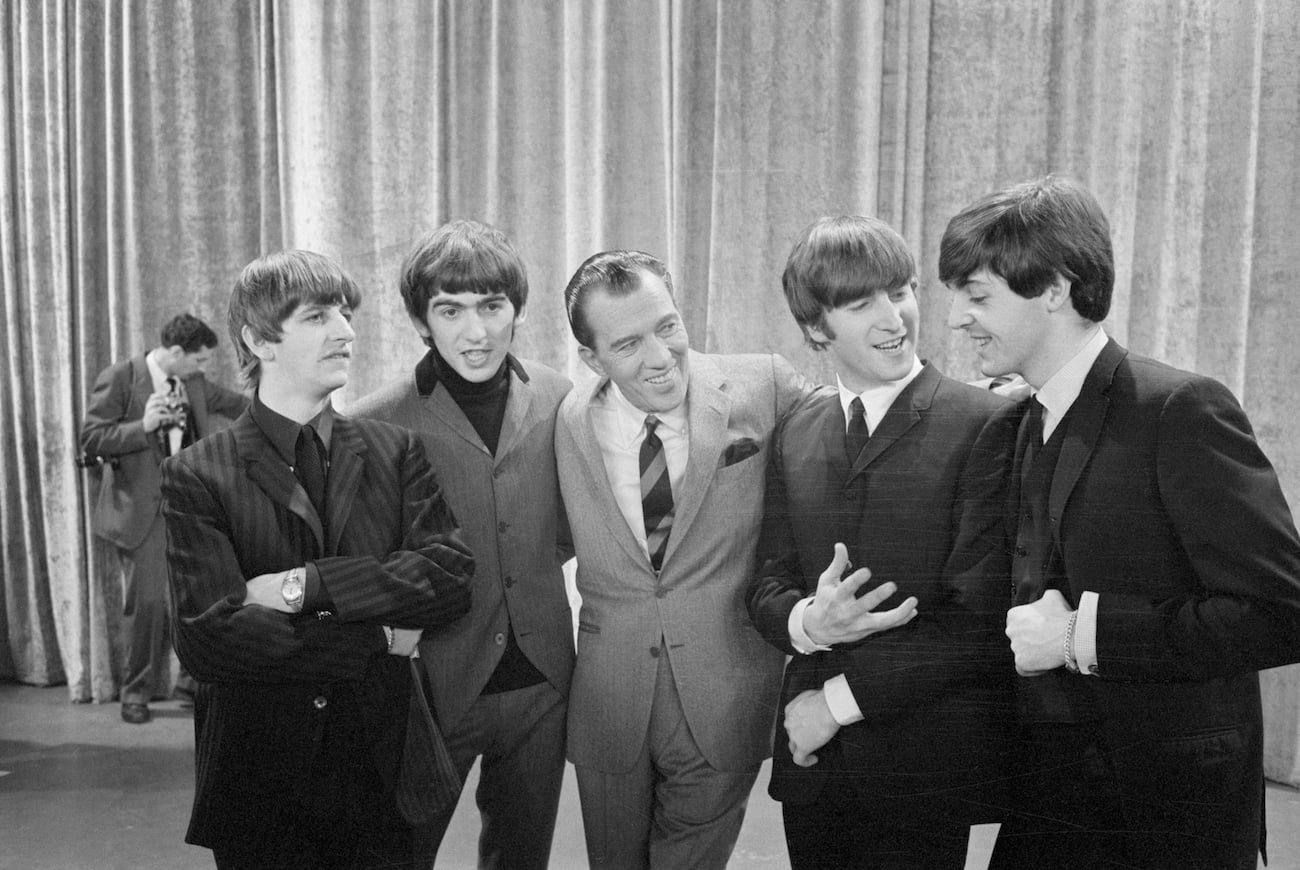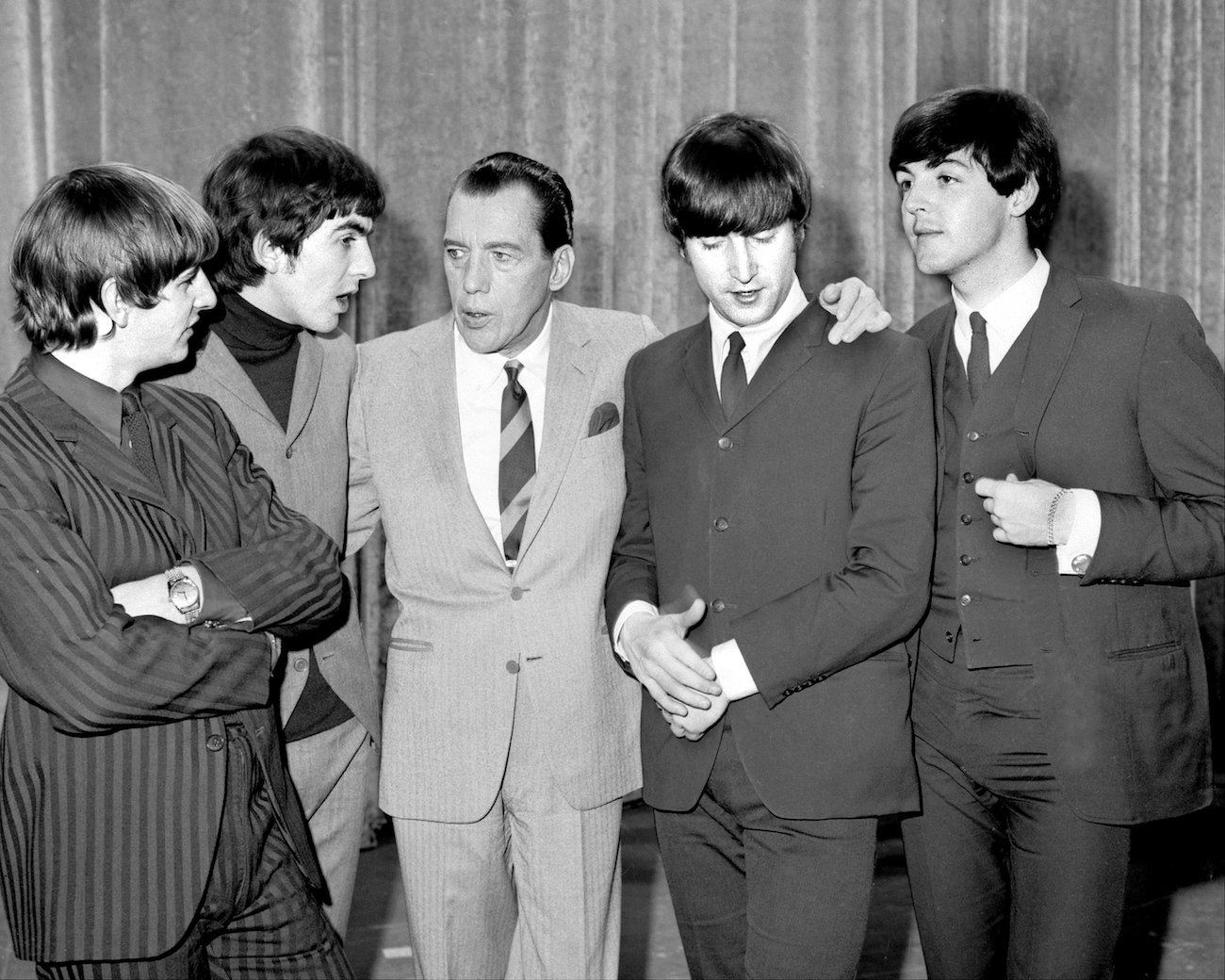
George Harrison Said No One Knew How to Do Sound at ‘The Ed Sullivan Show’
George Harrison said no one knew how to operate sound at The Ed Sullivan Show. However, The Beatles were used to not sounding well during their shows.

73 million people tuned in to watch The Beatles perform on ‘The Ed Sullivan Show’
Playing on The Ed Sullivan Show was a massive honor, especially for up-and-coming artists and acts from overseas. However, The Beatles, who already had a No. 1 hit in America, didn’t come cheap.
According to Mental Floss, The Beatles “would only agree to appear if the show covered their travel expenses and paid them a $10,000 fee (which would be just under $90,000 in 2022 dollars). Sullivan and his producers agreed, but only if The Beatles would commit to making three appearances. They had a deal.”
The performance turned out to be mutually beneficial. The Beatles got immense exposure that catapulted them into superstardom, and The Ed Sullivan Show got more viewers than ever before.
According to The Ed Sullivan Show‘s website, a record-setting 73 million people tuned in to watch The Beatles perform that night on Feb. 9. So, about 40 percent of the country’s population watched the show.
A crowd of 700 people, mostly screaming girls, erupted after Sullivan introduced The Beatles with “Ladies and gentlemen… The Beatles!” The next second, the band kicked into “All My Loving.”
George Harrison said no one at ‘The Ed Sullivan Show’ knew how to do sound
The Beatles’ appearance on The Ed Sullivan Show was groundbreaking. However, the people in the audience couldn’t hear the band perform.
In a 1977 interview with Crawdaddy (per George Harrison on George Harrison: Interviews and Encounters), George explained that no one at The Ed Sullivan Show knew how to do sound.
“The Sullivan show was funny because I didn’t attend the rehearsal, I was sick somehow on the flight over on the first trip to the States,” George said. “The band did a long rehearsal for the sound people, they kept going into the control room and checking out the sound.
“And finally when they got a balance between the instruments and the vocals, they marked on the boards by the control and then everybody broke for lunch. Then we came back to tape the show and the cleaners had been ’round and polished all the marks off the board.
“It was sort of a bit tacky in those days, with the sound. People would put amplifiers off the side of the stage so it didn’t spoil the shot, you know.”
The sound during The Beatles’ Shea Stadium performance was worse
Sound was a huge issue during The Beatles’ Shea Stadium performance. It was just another instance where the band couldn’t hear themselves perform, nor the audience. There was no way any amplifier would compete with the roar of 55,000 screaming fans.
Still, Vox tried its best, making special amplifiers to help with the sound.
In Here Comes The Sun: The Spiritual And Musical Journey Of George Harrison, Joshua M. Greene wrote, “Stadium concerts had never happened before. No singer or group could fill so large a space. Originally conceived for baseball, football, and other relatively nonmusical events, the acoustics inside Shea Stadium were poor.
“For the Beatles’ concert, the Vox sound company created customized amplifiers with their usual thirty watts of power boosted to a spectacular one hundred watts. Nothing helped. The Beatles’ performance was swallowed up by an all-engulfing noise that drove the arena’s two thousand guards to despair. Screams overwhelmed anything coming off the stage.”
“Now we were playing stadiums!” Ringo Starr explained in Anthology (per Beatles Bible). “There were all those people and just a tiny PA system – they couldn’t get a bigger one. We always used to use the house PA.
“That was good enough for us, even at Shea Stadium. I never felt people came to hear our show – I felt they came to see us. From the count-in on the first number, the volume of screams drowned everything else out.”
No matter what The Beatles did, their sound during performances was never satisfactory. Fans just screamed and screamed. It was one of the reasons why the band stopped touring in 1966.


